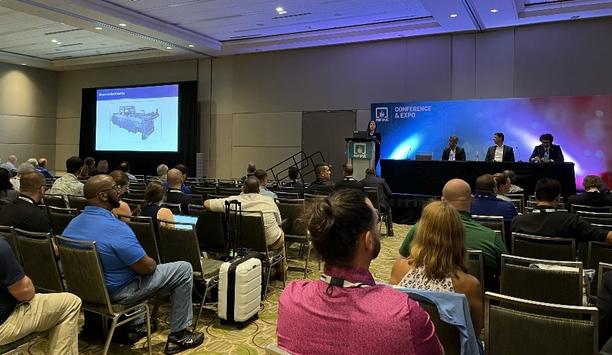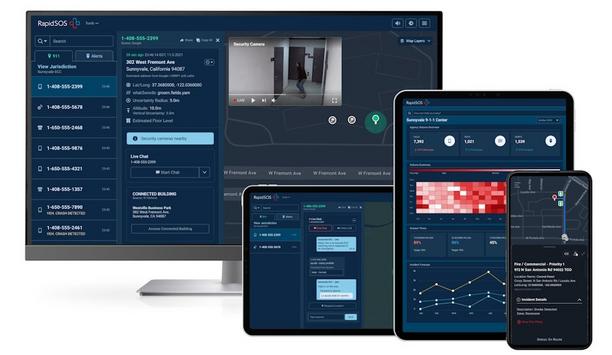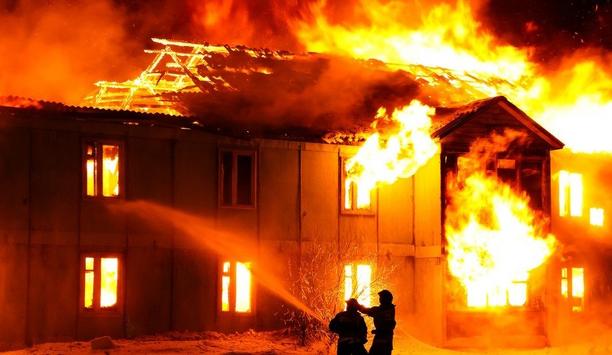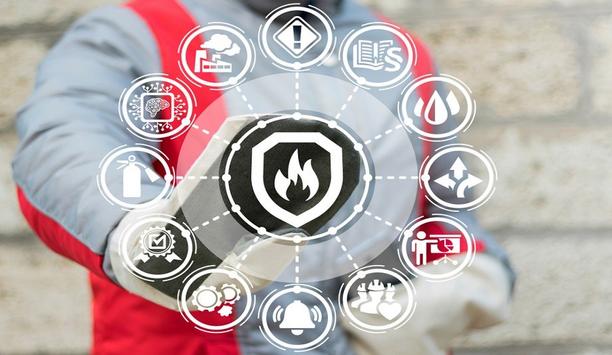Tracking firefighters’ exposure to smoke and cancer-causing materials is important when it comes to assessing liability claims, workers compensation, and coverage for occupational health claims. In a broader sense, tracking exposure to carcinogens provides important data for research to evaluate exactly how these materials affect the health and safety of firefighters.
Tracking and documenting exposure data for firefighters is easier than ever using the National Fire Operations Reporting System (NFORS) Exposure Tracker App, developed by the International Public Safety Data Institute (IPSDI) as part of the NFORS Analytics Data System.
The NFORS Mobile App, available in app stores, works on the iOS and Android platforms. The app helps firefighters, paramedics and officers create a personal and secure Career Diary, capable of logging both physical and mental exposures along with the incident details, in a private, encrypted, and secure online environment.
The app enables firefighters to track their health exposure, on the go, prompted by questions that include the nature of an incident, the presence of smoke, fire and flames, soot, and other information, including the extent of on-scene decontamination and gear cleaning.
simplifying documentation of exposure at fire scenes
The app helps firefighters, paramedics and officers create a personal and secure Career Diary, capable of logging both physical and mental exposures
It simplifies documentation of exposure at fire scenes after an incident response, and then maintains the information if verification for occupational cancer claims is needed later. Data is shared in the app indefinitely, and exposures are documented throughout a firefighting career. Every firefighter can even take his or her personal exposure database into retirement so that data are available if needed to document a cancer claim after they leave the job.
The app was developed through a collaboration of the International Associations of Fire Chiefs (IAFC), Metropolitan Fire Chiefs Association, International Association of Fire Fighters (IAFF), Underwriters Laboratories (UL), National Institute of Standards and Technology (NIST), the Urban Institute, and other fire service experts. The NFORS Exposure Tracker was funded by the U.S. Federal Emergency Management Agency’s (FEMA) Assistance to Firefighters Grant (AFG) Program and the Ramsey Social Justice Foundation.
The Arizona Municipal Risk Retention Pool (AMRRP) is providing the app to its members as a way to remove documentation hurdles fire service members face when seeking health coverage for occupational health claims. “With the app, member firefighters will be able to better assemble their exposure data for evaluation during any claim evaluation process,” says AMRRP President Rudy Rodriguez.
The challenges of firefighter occupational cancer claims
With the app, member firefighters will be able to better assemble their exposure data for evaluation during any claim evaluation process
For municipal risk pools, there are two challenges when it comes to firefighter occupational cancer claims. One is the undue burden of out-of-pocket costs for the firefighter when a claim is denied; and another is firefighter documentation of exposures to support the claim.
AMRRP is providing member firefighters access to the firefighter Exposure Tracking App for their phones. After AMRRP is notified of a claim, the primary focus of the claim evaluation process will be reviewing records.
Each first responder submits his or her data, including medical information, any previously maintained documentation about the types of incidents in which the first responder had been involved, and the exposure data compiled and stored on the NFORS Firefighter Exposure Tracking App.
The importance of preparedness
“The hope is that this data is never used, but if the need arises, each firefighter will be better prepared,” says Brian Jefferies, President of Arizona Professional Firefighters and a cancer survivor.
The International Public Safety Data Institute (IPSDI) procures, assembles, analyzes and reports information from fire, rescue and law enforcement data. IPSDI provides live dashboards for local public safety agencies to ensure usable information about their operations.






































